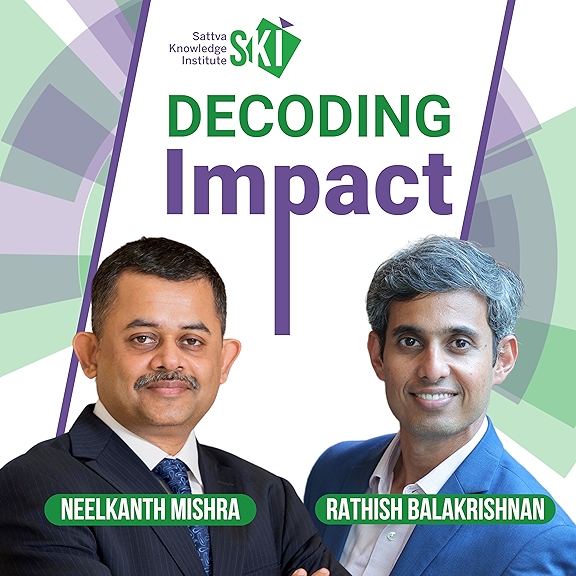14-08-2024
Are we settling for less in India's Education system? ft. Akshay Saxena & Vandana Goyal
With the recent Union Budget announcement allocating ₹1.48 lakh crore to education, employment, and skilling, one question we continue to grapple with in the impact ecosystem, but in Education especially, is whether money is enough to really achieve the outcomes needed?
Since Independence, Education has been the cornerstone of growth, development, and perhaps most importantly, hope for the nation. Yet, after so many decades of interventions, well-intentioned individual efforts, and the collective intent across philanthropy, the corporate sector, and government, why is Education in India still falling short of excellence?
In this episode of Decoding Impact, through a rich and powerful discussion with expert guests from Avanti Fellows, Akshay Saxena, Co-founder & co-CEO, & Vandana Goyal, Managing Trustee & co-CEO, host Rathish Balakrishnan delves into challenges across scale, systems, and gender in Education today to understand what it will take to truly scale excellence in India's education system.
Explore some of our SKI products related to this topic:
• Decoding ASER for Foundational Literacy and Numeracy Outcomes with Dr Rukmini Banerji
• Decoding Mafias, National Heroes, and the role of Government in Education ft. Anil Swarup
• Barriers to Breakthroughs: Encouraging Girls’ Participation in STEM Education
Guests: Akshay Saxena & Vandana Goyal
Host: Rathish Balakrishnan
Producer: Meenakshi Iyer
Produced by: Pickle Jar Media



















